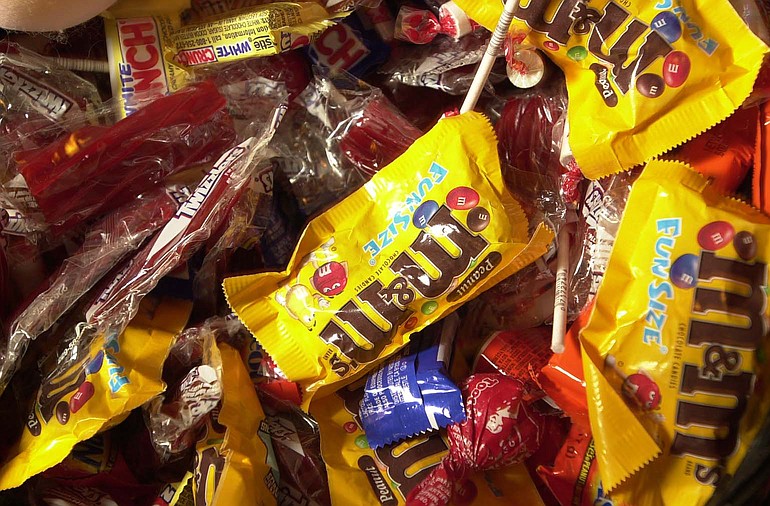EVERETT — When it comes to candy, Washington will soon be a state of the taxed and taxed-nots.
Come June 1, the state will begin adding sales tax to the price of gum and most — but not all — candy products.
If you’ve got a sweet tooth, you’ll need a spreadsheet to figure out whether your favorite goodie is about to get more expensive.
Three Musketeers, for example, will be taxed, but Milky Way will not. Starburst, Gummi Bears and M&Ms? Yes. Nestle’s Crunch and Twizzlers? No.
How will you and retailers know which item to tax? The Washington State Department of Revenue has posted online a list of nearly 3,000 items ranging from coffee-flavored hard candies to Wrigley’s Winterfresh chewing gum that will be subject to tax. You’ll find another 263 items that are not.
State Department of Revenue:
http://dor.wa.gov/newlegislation
What’s the difference? Flour. If the candy you like is prepared with flour, it will not be subject to sales tax.
Candy subject to the tax can be made with “sugar, honey, or other natural or artificial sweeteners combined with chocolate, fruits, nuts, or other ingredients or flavorings and formed into bars, drops or pieces,” according to the state Department of Revenue.
“Candy is a preparation of sugar, honey, or other natural or artificial sweeteners combined with chocolate, fruits, nuts, or other ingredients or flavorings and formed into bars, drops or pieces. Candy does not include any preparation containing flour and does not require refrigeration.”
Source: Washington State Department of Revenue’s website
Any product that lists flour as an ingredient on the nutritional facts label is not taxable as candy, the agency says. Flour is “made from grain such as wheat, rice, corn, rye, oats and barley.”
Why tax candy? With a $2.8 billion deficit, lawmakers decided to fill part of the hole and preserve funding for some public health, education and human service programs by raising taxes.
Majority Democrats approved a package of increases to bring in $800 million. The first of the increases, including a higher cigarette tax, took effect May 1.
Applying sales tax to candy and gum is expected to generate about $30 million in new revenue for this budget term.
"Candy is a preparation of sugar, honey, or other natural or artificial sweeteners combined with chocolate, fruits, nuts, or other ingredients or flavorings and formed into bars, drops or pieces. Candy does not include any preparation containing flour and does not require refrigeration."
Source: Washington State Department of Revenue's website
Candymakers in Washington can receive a tax credit of $1,000 for each worker retained for a calendar year to help offset a potential decline in sales.
Also starting June 1, sales tax will be applied to bottled water. The tax on barrels of mass-marketed beer also will rise, which could push the price of six-packs higher.
On July 1, a tax on soft drinks will go into effect.



